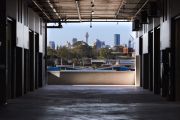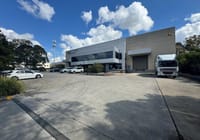
The biggest court battles in property this year
Action returns to Australia’s courtrooms this year as some of the country’s biggest names in property and construction do battle in long-standing and significant disputes.
The building-industry crises of combustible cladding and cracking residential towers will play out in court – and, no doubt, behind the scenes – as the parties and their insurers work out the best way to resolve the deep-seated problems that cast a cloud over the recovery of the housing development cycle.
And then there are corporate battles over leasing agreements in office and retail property. There’s money at stake, plenty of it, and the outcomes matter not just for the players involved, but the wider industry, too.
Opal Tower class action
Apartment owners at Sydney’s Opal Tower launched a class action against the NSW government’s Sydney Olympic Park Authority in July last year, seeking millions in compensation following the tower’s failure and evacuation on Christmas Eve in 2018.
The Federal Court lawsuit claims that the construction of the tower breached the Home Building Act because it was not built in accordance with plans and specifications.
NSW dragged the tower’s builder Icon and developer Ecove into the action through a cross-claim, while Icon sued engineer WSP in a second cross-claim.
Lacrosse dispute
The combustible cladding has now been replaced, but Victoria’s Supreme Court of Appeal will in mid-June hear the long-awaited challenge by the Lacrosse tower’s building surveyor, fire engineer and architect to the judgment early last year that found them liable for using that cladding on the Melbourne building.
While each of the consultants has its own argument, the three – collectively hit with 97 per cent of liability in the Victorian Civil and Administrative Tribunal judgment in February – want the higher court to allocate more liability to builder LU Simon, saying the builder largely escaped its statutory obligations under the Building Act and should be regarded as a “concurrent wrongdoer”.
A successful appeal could force a reconsideration of design-and-construct contracts, under which a builder takes on a development contract from a developer and subsequently strikes its own contractual arrangements with lower-level contractors and consultants.
Cladding class actions for products
The first cladding class actions in Australia will grind ahead slowly this year, with only procedural steps likely to be made before any full hearing that will only take place next year – unless settlement is achieved earlier.
Litigation funder IMF Bentham and William Roberts Lawyers last year launched separate, but parallel, actions against suppliers of the country’s two leading aluminium composite panel products, arguing that the polyethylene-core panels failed to meet standards set by consumer protection laws and carried a “material risk” of causing or spreading fire, and increasing the risks to life or property in the event of a fire.
While consumer law has long given individual consumers a means of redress for defective products against manufacturers with whom they have no direct relationship, the cases against Alucobond supplier Halifax Vogel Group and manufacturer 3A Composites and Vitrabond supplier Fairview Architectural mark the first time the law has been used to bring a claim in relation to combustible cladding.
A judgment, or settlement prior to judgment, could give compensation to owners of potentially thousands of apartments across Australia, as well as owners of commercial and government buildings and even long-term leaseholders with the obligation to rectify defects.
Next month the plaintiffs are due to serve amended statements of claim on the respondents, taking into account the updated understanding of product liability legislation following November’s Federal Court judgment that found pharmaceutical giant Johnson & Johnson negligent over the testing and sale of pelvic mesh implants.
If the respondents object to the amended pleadings, those objections will also be heard next month.
Grocon vs GPT
Led by property scion Daniel Grollo, private developer Grocon has locked horns with $11 billion ASX-listed property fund manager GPT Group in a dispute over lease obligations at a landmark Brisbane tower.
Grocon lodged its action in the Supreme Court of Victoria last year after GPT served it with a demand for close to $21 million that the fund manager claimed was owed from leases at the Riverside Centre in the Brisbane CBD.
Four years ago Grocon became responsible – “took assignment” in legal terms – for a series of leases across whole and part floors in 123 Eagle Street, a GPT-owned building.
The leases were taken over from a series of bluechip corporate tenants: PwC and law firms Allens and HWL Ebsworth. They were tenants Grocon had wooed for its development at 480 Queen Street nearby.
Court documents show Grocon brokered a standstill agreement with GPT in September 2018. Grocon paid an initial payment of $2.75 million. Then in July last year GPT sent Grocon a letter of demand for the remainder owed. Grocon has acknowledged that some is still owed but disputes how much.
Home Consortium vs Aventus
ASX-listed retail centre landlords Home Consortium and Aventus will return to court in 2020 over a dispute involving the right of Home Consortium to sublease a former Masters store to Amart Furniture.
Home Consortium won the first round of the battle when Victoria’s Supreme Court ordered Aventus to consent to the sublease within is Cranbourne Home homemaker centre in Melbourne’s south-east.
However, in September Aventus lodged an appeal in the Court of Appeal of Victoria’s Supreme Court.
The battle which reflects a bigger tussle for control of the large-format retail property sector – pits Rich Lister against Rich Lister with Aventus backed by retail king Brett Blundy while Home Consortium’s backers include Spotlight founders Zac Fried and his uncle Morry Fraid, Chemist Warehouse owners Mario Verrocchi and Jack Gance.











